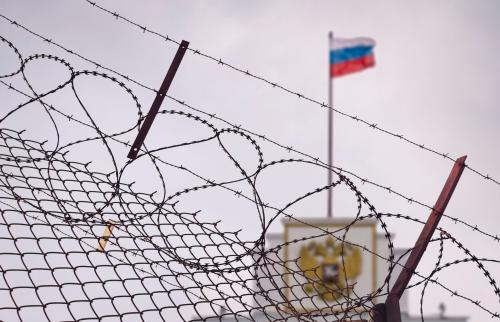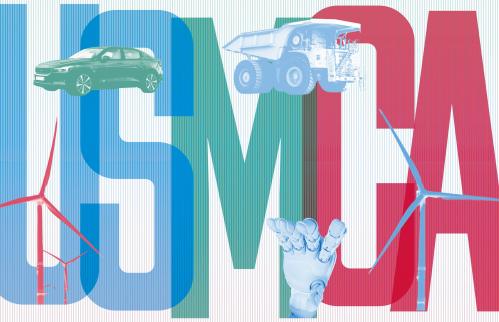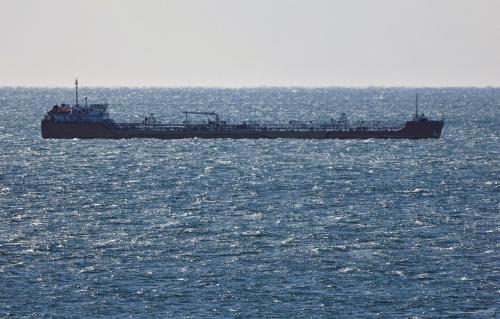WEF holds annual meeting
From January 20-23, over 40 heads of state and government and 2,500 experts from the private and social sectors, gathered at the 46th World Economic Forum Annual Meeting (WEF), taking place from in Davos-Klosters, Switzerland, under the theme, “Mastering the Fourth Industrial Revolution.” Over the years, the forum has focused on critical global issues such as security, climate change, global growth and commodity prices.
At the forum, the African Development Bank (AfDB) presented its New Deal on Energy for Africa: A transformative partnership to light up and power Africa by 2025, which aims to accelerate energy investments to reach universal access to electricity by 2025. The president of the AfDB, Akinwumi Adesina, emphasized that the focus of the deal is on Power, Potential, and Partnership: Power, as the deal aims to light up Africa by 2025, Potential as the supply of energy is key as the continent is aiming to capitalize on its full economic potential, and Partnership as such progress cannot be achieved alone and will require the help of multinationals and the private sector, among other actors. The event had a substantial South African presence, with reports suggesting that about half of the African delegation is from South Africa, and South African Finance Minister Pravin Gordhan discussed his country’s economic outlook, with the aim of convincing investors that South Africa’s economy and fiscal policy remain strong, and the investment climate remains one of the safest in Africa. Other sessions included discussion of Africa’s next challenge including a conversation on how the fourth industrial revolution could affect Africa—a region where productivity has fallen over the last 10 years.
Prior to the WEF annual meeting, the International Monetary Fund released its World Economic Outlook update that suggests subdued global economic activity overall. Advanced economies are expected to have a modest but uneven recovery. Developing nations, however, are expected to have a diverse anticipated growth trajectory, and most countries in sub-Saharan Africa could undergo a gradual pickup in growth. The report highlights some of the key risks in the forecast, which include the slowdown of China’s economy and the drop in commodity prices—the price of crude oil dropped to a 12-year low this week as it traded below $27 per barrel this week.
Kenya decides to cut ballooning budget
This week, the Kenyan government announced that it would cut its budget by close to $600 million (or nearly 1 percent of its GDP) in a supplementary budget document to be released next month. This announcement comes after Kenya missed its tax revenue targets by 10 percent in the first quarter of the financial year 2015/2016, and its budget deficit has been increasing due to mounting spending on infrastructure and local government projects. Henry Rotich, Kenya’s finance minister, said the move to reduce the budget was predicated on a need to “to create some buffers, some fiscal space because we are now living in a world where there is a lot of vulnerability.” According to the Financial Times, the cuts would mostly come from recurrent expenditures rather than job-intensive development projects, although some projects could be deferred.
Ministry officials expect that cutting the budget in order to deal with the growing deficit will reinforce investor confidence in the country while also stabilizing its currency (which lost nearly 11 percent against the dollar in 2015) and preventing hikes in borrowing rates. Despite the challenges contributing to the budget deficit, Kenya’s current account balance, which has suffered from economic slowdown in China and a rise in U.S. interest rates, has also benefited from a lower import bill owing to low crude oil prices since Kenya is a net oil-importing country.
Burkina Faso attacks reflect heightened security risks in West Africa
Last weekend, Burkina Faso became the latest target of al-Qaida-linked jihadists as militants performed several attacks in the capital Ouagadougou. Friday evening, armed attackers seized hostages and shot several people in the neighborhood surrounding the Cappuccino Café and nearby Splendid Hotel—an area popular among tourists and foreigners. The attacks left nearly 30 people dead and 56 wounded. The majority of the victims were foreigners, most of whom lived in Ouagadougou for humanitarian reasons.
This attack is the second terrorist attack of its nature to take place in West Africa within the last three months. On November 20, 2015, gunmen attacked a Radisson Blu Hotel in Bamako, leaving 22 people dead. Said attack was also claimed by al-Qaida in the Islamic Maghreb (AQIM), a group whose influence in the region has been worryingly rising over the past year. Experts see the rise of the group as a “show of force” amid the increased intensity of rival group ISIS.
The string of attacks in the region raises several questions on the state of Islamist terrorism in West Africa. Following the attacks, hotels throughout the region have strengthened their security by adding armed guards and enhancing cooperation with police. Additionally, this week, France issued a warning to Senegal and Côte d’Ivoire, stating that Islamist militants had plans to attack the two West African nations. Dakar and Abidjan, due to their large population of Westerners, are deemed attractive to Islamist militants.
The Brookings Institution is committed to quality, independence, and impact.
We are supported by a diverse array of funders. In line with our values and policies, each Brookings publication represents the sole views of its author(s).




Commentary
Africa in the news: WEF underway, Kenya cuts budget, and terrorists hit Burkina Faso
January 22, 2016